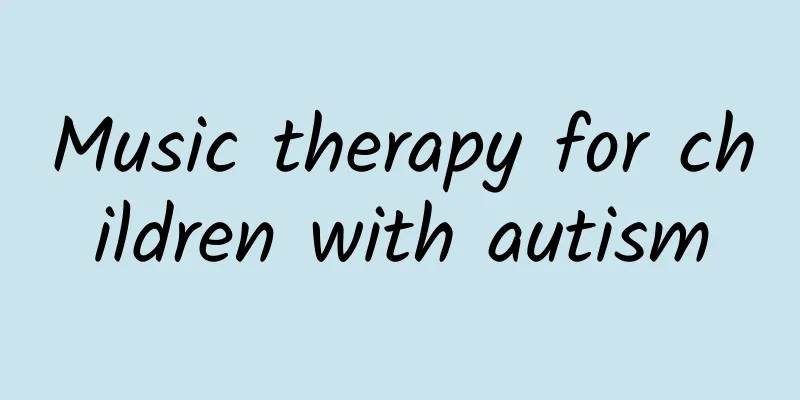Music therapy for children with autism

|
Music therapy refers to a method of treating diseases or promoting physical and mental health based on the practicality of music and applying music or music-related experiences as a means according to a systematic treatment procedure. Music can help us relax and relieve fatigue. For autistic children, music is like a good medicine, which goes beyond language to express the emotional world, open the hearts of autistic children, help them communicate with the world, and has a good effect on the treatment of autism. So what are the uses of music therapy for the treatment of autism? 1. Music therapy can develop correct social and emotional behaviors in children Children with this disorder usually have difficulty acquiring correct social skills. Organized music activities, such as singing, rhythm and movement, can provide them with an environmental stimulus for learning social behavior. Group music therapy can enhance experiences such as cooperation, sharing, observing order, and correct polite behavior. For example, through the music "Looking for a Friend", children can learn correct polite behavior (salute, handshake, etc.), and the process of listening to music will also bring them a sense of pleasure. In fact, many children with this disorder have incorrect behaviors such as not observing order, aggressive language, and random activities. However, through the process of participating in music activities, these incorrect behaviors will be significantly reduced. Under the playing of musical instruments, listening and the rhythm of music, it will become a reinforcing stimulus to enhance correct social behavior. 2. Music therapy can develop children's communication skills Poor language communication ability is the most prominent problem for children. Mild and moderate children may develop basic language skills, but severe and extremely severe children must learn non-verbal communication methods such as sign language or the use of pictures. Music activities are an ideal way to learn communication skills. Therapists use the melody, rhythm, speed, pitch, dynamics and lyrics of music to develop children's ability to express language, receive language and accept guidance. In addition, music activities can help children expand their range of speech, improve pitch discrimination, and improve speech clarity and speech quality. 3. Music therapy can enhance children's hearing and memory abilities Children usually lack the ability to distinguish between meaningful and irrelevant auditory stimuli in the environment, making it impossible to obtain and communicate information. Therapists can help children enhance their auditory system through various music activities, such as locating, tracking, identifying and distinguishing sounds. In the process of music therapy, repeated melodies and lyrics can help children enhance their memory of the content. We cannot ignore the therapeutic effect of music therapy on children with autism. In actual application, we design different activities for children of different levels, and use enthusiasm to open up the children's closed and dark world. |
<<: Young people should also know: High blood pressure is the main cause of stroke!
>>: Prevent COVID-19 and improve your baby's immunity—Practice family health massage
Recommend
What is the problem if there is blood in a woman's urine?
If the body is healthy, the urine is relatively c...
How long does it take for a woman to have her period after medical abortion?
Abortion is something many people are unwilling t...
What is the cause of the pain in the left chest?
Many women's bodies will experience some chan...
What is the best way to maintain cervical erosion?
With the rapid development of today's society...
What causes itchy nipples and areolas?
Women during pregnancy often experience symptoms ...
Is uterine cleaning necessary after miscarriage?
Many women will suffer miscarriage due to some re...
Do pregnant women need to fast for urine test?
Pregnancy is a critical stage in every woman'...
Can I have a baby if I smoke one month into my pregnancy?
Some women in daily life also like to smoke. Smok...
[A Fun Anatomist] Can’t wink? You can always blink!
Speaking of winks, does everyone subconsciously t...
Pregnancy Weight Calculator
How much a woman gains weight during pregnancy is...
What are the risks of ovarian removal?
Current surgeries are already quite mature, inclu...
What to do if your baby suddenly has an accident? A complete guide to infant cardiopulmonary resuscitation (CPR), a must-learn for new parents
A friend who knows medicine around you / makes he...
How to end your period quickly
For women, the impact of menstruation is relative...
Girls have small pimples next to their private parts
The female genitals are the most private and sens...
Advantages and disadvantages of breast ultrasound examination
The pressure of daily life and work is particular...









